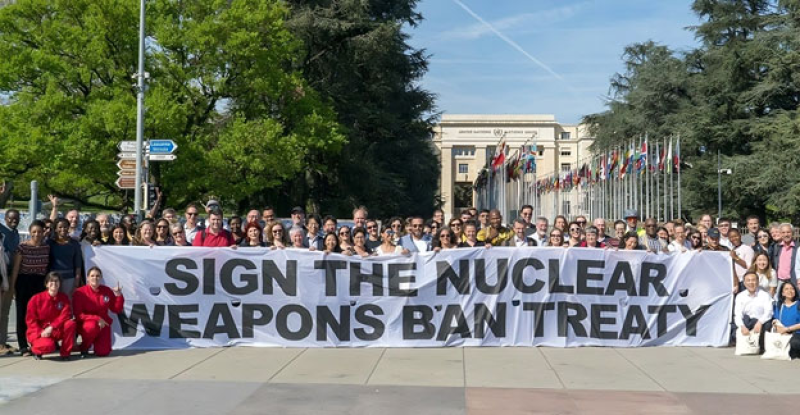- Arab-Islamic Summit Warns Israel Attacks Threaten Ties |
- South-South Cooperation: Building Innovation and Solidarity |
- Consensus must; polls to be a grand festival: Prof Yunus |
- Salahuddin sees security risks if polls miss February deadline |
- Qatar denounces Israel before major summit over Doha attack |
UNGA Limits NGO Access, Civil Society Voices Protest

The International Campaign to Abolish Nuclear Weapons (ICAN) is a coalition of non-governmental organizations (NGOs) in over 100 countries promoting adherence to, and implementation of, the United Nations nuclear weapons ban treaty.
When the high-level meeting of more than 150 world leaders takes place on 22–30 September, thousands of non-governmental organizations (NGOs) and their accredited UN representatives will either be banned from the premises or permitted entry on a strictly restricted basis – as happens every year.
This year will be no exception.
In a message to staff, journalists, and NGOs last week, the UN outlined strict ground rules for the summit. Members of civil society organizations (CSOs) and NGOs invited to attend high-level meetings or other events must carry both a valid NGO pass and a special event ticket (indicating the meeting, date, and time) to gain access.
“A United Nations non-governmental organization (NGO) pass alone does not grant access during the week of 22–30 September 2025,” the message warned.
These restrictions continue despite the significant role NGOs play at the UN and around the world.
Former UN Secretary-General Kofi Annan once described NGOs as “the world’s third superpower.” Former Deputy Secretary-General Asha-Rose Migiro also emphasised the UN’s reliance on NGO partnerships, highlighting their role in peace-building, human rights, disaster response, and humanitarian aid.
Yet, none of these acknowledgements have changed the long-standing UN policy of restricting NGO access during high-level meetings, a practice the UN justifies primarily for “security reasons.”
Currently, more than 6,400 NGOs hold active consultative status with the UN Economic and Social Council (ECOSOC).
Civil society leaders, including those from CIVICUS, Greenpeace International, ICAN, and Democracy Without Borders, criticised the restrictions, calling them exclusionary and a lost opportunity to engage decision-makers at a critical moment for peace, climate action, and human rights.
They argue that if the UN is to live up to its founding words – “We the Peoples” – it must ensure civil society is not marginalised but meaningfully included.

